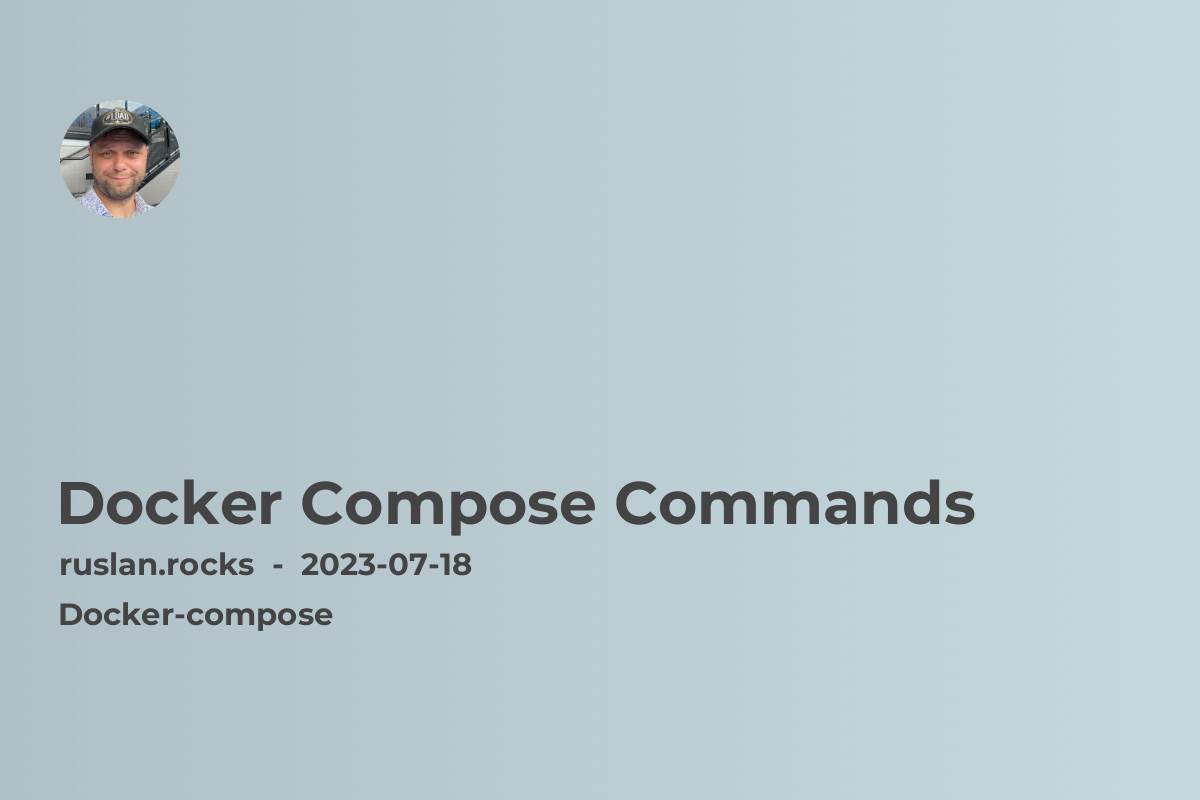- Getting Started with Docker Compose
- docker-compose up
- docker-compose down
- docker-compose ps
- docker-compose logs
- docker-compose exec
- Recommended Related Topics

Docker Compose is a tool that allows you to define and run multi-container applications. It provides an easy way to manage and deploy your Docker containers. In this article, we will explore some of the most commonly used Docker Compose commands and how they can simplify your container deployment process.
Getting Started with Docker Compose
To get started with Docker Compose, you need to have it installed on your system. If you haven't already, you can follow our guide on how to install Docker Compose on Ubuntu. Once you have Docker Compose set up, you can start using the commands below to manage your containers effectively.
docker-compose up
The first and most commonly used command is docker-compose up. This command builds, (re)creates, starts, and attaches to containers for a service. It ensures that all the containers specified in your docker-compose.yml file are up and running. This command is the backbone of container deployment and allows you to easily spin up your entire application stack.
docker-compose down
When you no longer need your containers, you can use the docker-compose down command to stop and remove all the containers created by your docker-compose file. This command is particularly useful when you want to clean up your environment or make changes to your containers.
docker-compose ps
To see the status of your containers, you can use the docker-compose ps command. This command provides you with a list of container services defined in your docker-compose.yml file, along with their status. It helps you easily identify any issues or errors with your containers.
docker-compose logs
When something goes wrong with your containers, docker-compose logs is your go-to command. It allows you to view the logs produced by all the containers defined in your docker-compose.yml file. It helps you quickly diagnose and troubleshoot issues, saving you time and effort.
docker-compose exec
If you need to execute commands inside a running container, you can use the docker-compose exec command. It allows you to run arbitrary commands on a specific container, providing you with access to the container's shell. This command is handy when you need to debug or interact with a specific container in your application stack.
Recommended Related Topics
Now that you have a good understanding of Docker Compose commands, you can explore other topics related to container deployment. Here are some articles you might find helpful:
- Scaling Docker Containers with Docker Swarm
- Using Environment Variables in Docker Compose
- Docker Networking: Connecting Containers
By diving into these topics, you'll not only deepen your knowledge of Docker Compose but also gain valuable insights into various aspects of containerization and deployment. Happy containerizing!
Note: This article is part of my ongoing series on Docker and containerization. Stay tuned for more exciting container-related content!
